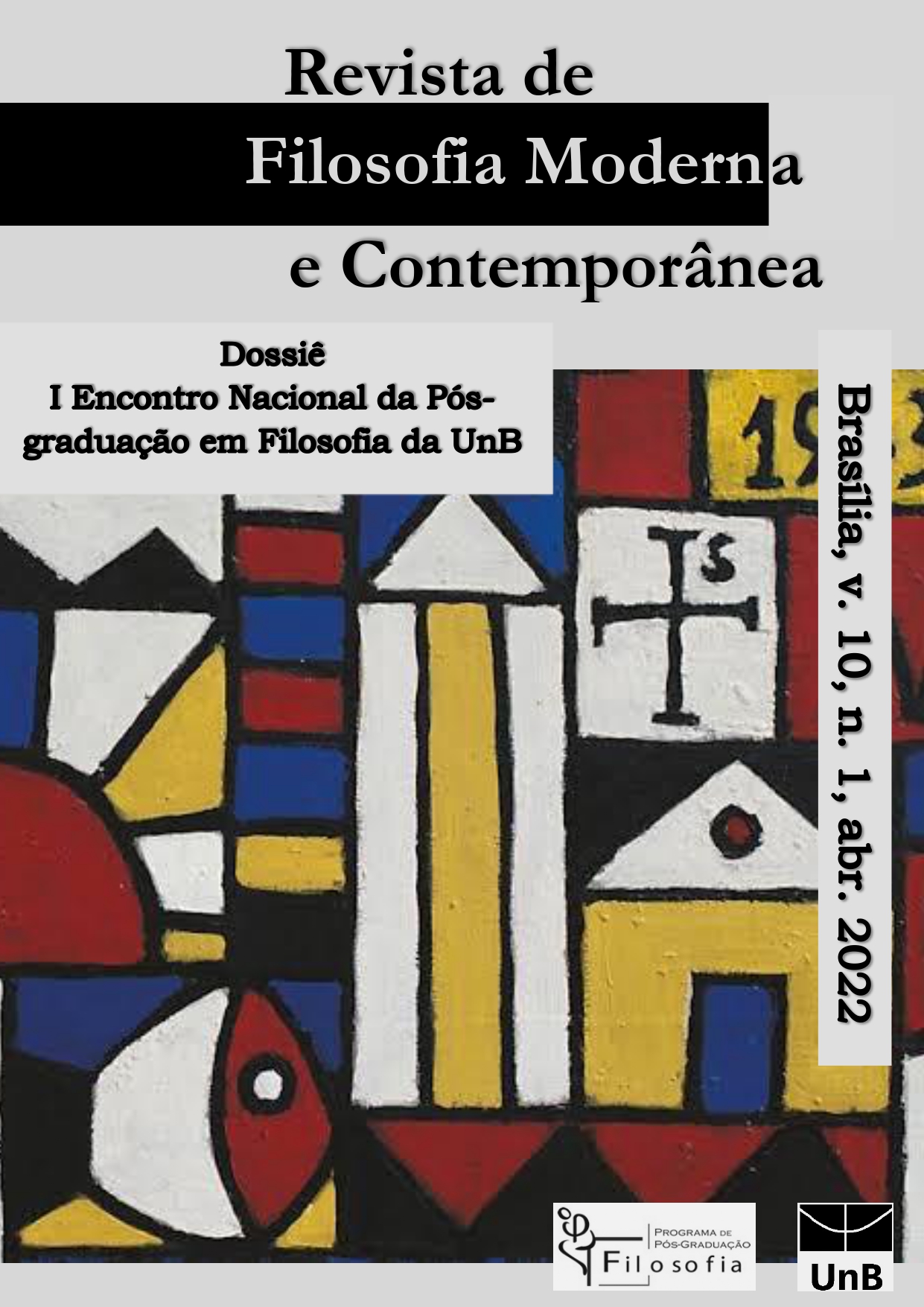Political Representation in Thomas Hobbes
DOI:
https://doi.org/10.26512/rfmc.v10i1.47711Keywords:
Hobbes. Modernity. Representation.Abstract
The article examines the theory of representation through which the English philosopher Thomas Hobbes constructs the most mature and elaborate version of his political doctrine. The Leviathan demonstration innovates and resolves certain ambiguities of previous works by using the theory of representation, support of the sovereign’s supreme power; opens political science to modernity. With this fiction, the reasoning acquires a coherence that it had not yet attained in either Elements of Law or De Cive. For Hobbes, representation plays a decisive role in structuring the legal world in which the State consists. From the thought of the English philosopher, the notion of representation reaches for the first time a political meaning, inaugurating a new way of understanding the social and political bond, as well as the institution and perpetuation of the political community with its conceptualization as a principle of community existence.
Downloads
References
HOBBES, Thomas. Leviathan. C. B. Macpherson. Londres: The Penguin English Library, 1981.
HOBBES, Thomas. Leviatã. Org. Richard Tuck. Tradução de João Paulo Monteiro et all. São Paulo: Martins Fontes, 2014.
HOBBES, Thomas. Do Cidadão. Tradução: Renato Janine Ribeiro. São Paulo: Martins Fontes, 1998.
HOBBES, Thomas. Os Elementos da Lei. Tradução: Bruno Simões. São Paulo: Martins Fontes, 2019.
LANDEMORE, Helene. Is representative democracy really democratic? Interview of Bernard Manin and Nadia Urbinati. New York, April 10, 2007. Books and Ideas, 31 March 2008. ISSN: 2105-3030. URL: https://booksandideas.net/Is-representative-democracy-reallydemocratic.html.
LEROUX, Alfred. Resumé de les théories politiques du moyen âge, par Otto von Gierke, professeur de droit à l’Université de Berlin. Précédées d’une introduction par Frédéric-William Maitland, professeur de droit à l’Université de Cambridge. Traduites de l’allemand et de l’anglais par Jean de Pange. Paris. Soc. du recueil Sirey, 1914. In: Bibliothèque de l’école des chartes. 1914, tome 75. pp. 362-365; https://www.persee.fr/doc/bec_0373-6237_1914_num_75_1_448532_t1_0362_0000_1.
MANENT, Pierre. História Intelectual do Liberalismo. Tradução: Jorge Costa. Lisboa: Edições 70, 2018.
POLIN, R. Politique et Philosophie chez Hobbes. Paris: Presses Universitaires de France, 1953.
VIEIRA, Mónica Brito. The Elements of the representation in Hobbes. Aesthetics, Theatre, Law, and Theology in the construction of Hobbes’ theory of the State. Vol. 2. Leiden: Brill, 2009.
Downloads
Published
How to Cite
Issue
Section
License
Copyright (c) 2022 Journal of Modern and Contemporary Philosophy

This work is licensed under a Creative Commons Attribution-NonCommercial-NoDerivatives 4.0 International License.
Copyright for articles published in this journal is retained by the authors, with first publication rights granted to the journal. By virtue of their appearance in this open access journal, articles are free to use, with proper attribution, in educational and other non-commercial settings.


